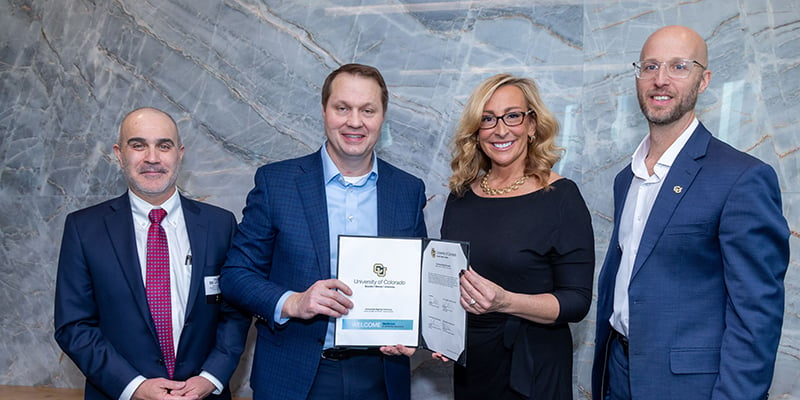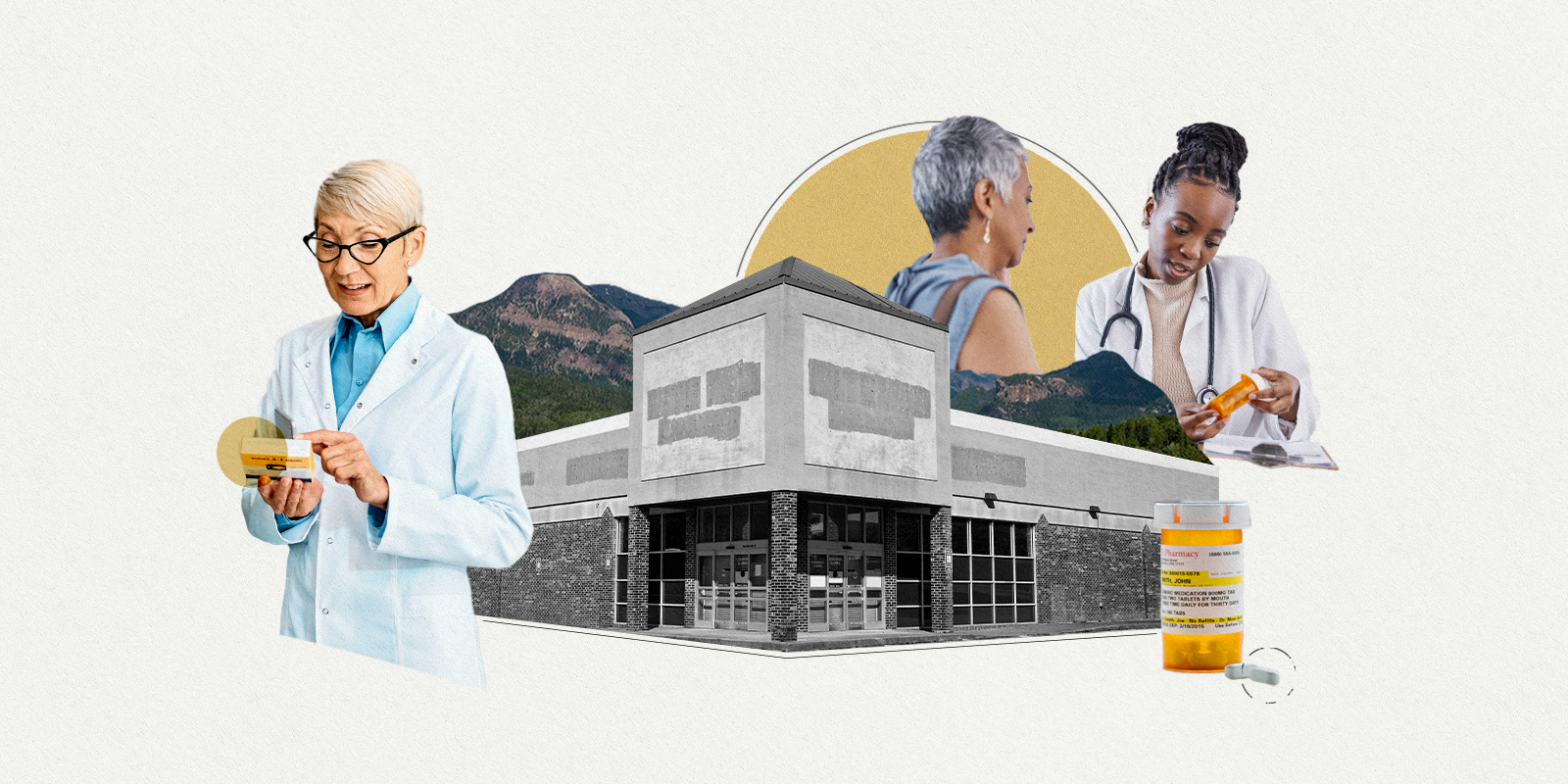Why is Eating Disorder Awareness Week important?
Eating disorders that are clinically significant affect approximately 30 million Americans, or about 9% of the population. That number does not account for the many more Americans who struggle with subclinical – meaning they do not meet clinical criteria – eating disorders or disordered eating.
What are some common misconceptions or myths about eating disorders?
Despite it being 2023, there are people who still believe that eating disorders are not common and only affect white, middle-class, young, cisgendered females. Others believe that eating disorders are simply about being “vain” or wanting to look a certain way. However, it’s misbeliefs such as these that lead many to feel stigmatized and not reach out for support.
The truth is that eating disorders are complex disorders that are caused by a combination of biological, psychological and social factors. The symptoms we often see of restriction, binging, purging and preoccupations with weight and shape are only the tip of the iceberg. Eating disorders are caused and maintained by many factors including, but not limited to, genetics, trauma, brain chemistry, family dynamics, interpersonal issues and comorbidities such as depression, anxiety or obsessive-compulsive disorder (OCD).
And the belief about who is affected by eating disorders couldn’t be farther from the truth. Research has shown that BIPOC (Black, Indigenous and People of Color), the LGBTQ+ population, people with disabilities and those in larger bodies are just as likely, if not more likely, to suffer from eating disorders and disordered eating. BIPOC also are significantly less likely to be diagnosed, treated or even assessed and asked questions about eating disorders or disordered eating.
Social media has been in a negative spotlight when it comes to perpetuating eating disorders and misinformation. TikTok seems to be at the top of this list. What are some of the latest issues that have come up?
While some social media platforms have made efforts to block pro-eating disorder content or offer the appropriate resources for eating disorder or suicide help hotlines and websites, harmful content is still being created and shared. Content that promotes unhealthy behaviors and unrealistic beauty standards is rampant from celebrities, to influencers, to your friends using the latest photo editing/filter app. You really can’t escape it.
If someone views something about eating disorders, dieting or exercise, the algorithm on TikTok will work quickly to show them more and more content that is similar. Social media is already addictive and time-consuming; add hours of scrolling through content that is fat-phobic, pro-eating disorder, or just gives harmful dieting or exercise advice, and it’s a recipe for disaster.
Social media, including Instagram and TikTok, has been great in reducing stigma and allowing some to find communities and connection. However, the accounts that glorify and romanticize eating disorders, and mental illness in general, overlook how serious, impairing and painful these disorders are for millions of people. Eating disorders have the second highest mortality rate of any mental illness, only surpassed by opioid-use disorder. If we have people on social media going around continuing to glorify these disorders, shelling out the latest fad diet, or spewing fat-phobic vitriol, we are going to continue to see the number of eating disorders rise, as well as the number of children and adolescents with self-esteem and self-worth issues increase.
I think my other concern is with the artificial intelligence applications that create AI images of people. These apps take photos of us and “perfect” them, making us look almost not human. I think this and the growing use of filters and photo editing apps are huge issues, especially with children and adolescents. They promote unrealistic beauty and image standards that could negatively impact not only those with eating disorders and disordered eating, but really anyone in our society.
ChatGPT is very popular right now, but the more sinister sides of the application are already being addressed in the media. As an eating disorder specialist, are you worried that this new technology could have a negative impact on those at risk for disordered eating or eating disorders? Are there pros to ChatGPT and eating disorder support?
While the potential for ChatGPT in the mental health space is there, it’s far from ideal right now. ChatGPT wasn’t designed to be a therapist and wasn’t designed to provide mental health support. It could provide knowledge about mental health, but it can’t provide accurate diagnosis or treatment recommendations and advice. This could lead to people not seeking actual medical and psychological help for what are life-threatening mental disorders. With eating disorder treatment, you also need a treatment team to be able to monitor your weight, vital signs and nutritional intake, ideally in person. ChatGPT can’t do this. The technology also lacks the personability and connection that are essential to be a human.
ChatGPT, for all of its knowledge, could also mislead people with dieting or weight advice that leads to disordered eating, especially if someone is predisposed to an eating disorder. It simplifies the solution, when the reality is that eating disorders are complex disorders that can take years and often several relapses before someone recovers. ChatGPT could also potentially be used as a “how to” for having an eating disorder (e.g., by giving weight-loss advice, dieting advice, etc.). All you have to do is ask it, “Can you create a meal plan for me where the meal is under 500 calories?” and it will. This has potential to be dangerous and play right into the obsessive calorie counting and restrictive diet that plagues those with eating disorders and disordered eating.
However, eating disorder specialists are far and few. More and more therapists are not taking new clients and are often expensive or don’t take insurance. Chatbots could eventually have the potential to be a cheap, accessible prevention tool or screening tool. Perhaps it could even be used to provide supportive messages to encourage those with eating disorders to stay in recovery. I don’t see it being an effective and safe alternative for actual therapy and treatment any time soon.
Overall, we need to cultivate a balanced and intentional relationship with social media and any new technology. We cannot over-rely on chatbots and AI for therapy and especially not for treatment (at least for now). There’s so much misinformation and hatred that is out there, so we have to combat it when we have the capacity, learn when to step out and take care of ourselves when we don’t have the capacity, set boundaries with others and ourselves, and practice mindfulness around any use of technology.
Fitness and diet culture are prevalent in Colorado. Behaviors in these cultures can put people at risk for disordered eating, compulsive exercise or eating disorders. What are some warning signs that you or a loved one might be exercising too much or be struggling with disordered eating/eating disorder? When do these behaviors cross over into dangerous territory?
Rigidity around diet and movement are a huge warning sign. Cutting out entire food groups or going on fad diets frequently, bringing their own food to gatherings vs. having what everyone else is having, as well as being preoccupied with what others are eating.
If someone cannot go a day without exercise or becomes upset when they cannot complete their exercise routine, that is a sign of rigidity around movement. When someone’s life is completely consumed by what they eat, foods having moral value (e.g., “good” vs. “bad” foods), feeling that they need to exercise to “earn” certain food, and feeling that only certain types of exercise “actually count” as exercise (e.g., feeling like yoga or walking doesn’t count as exercise). If someone becomes obsessive around food, exercise or body shape/size or presents with mood changes, this may also be a warning sign.





